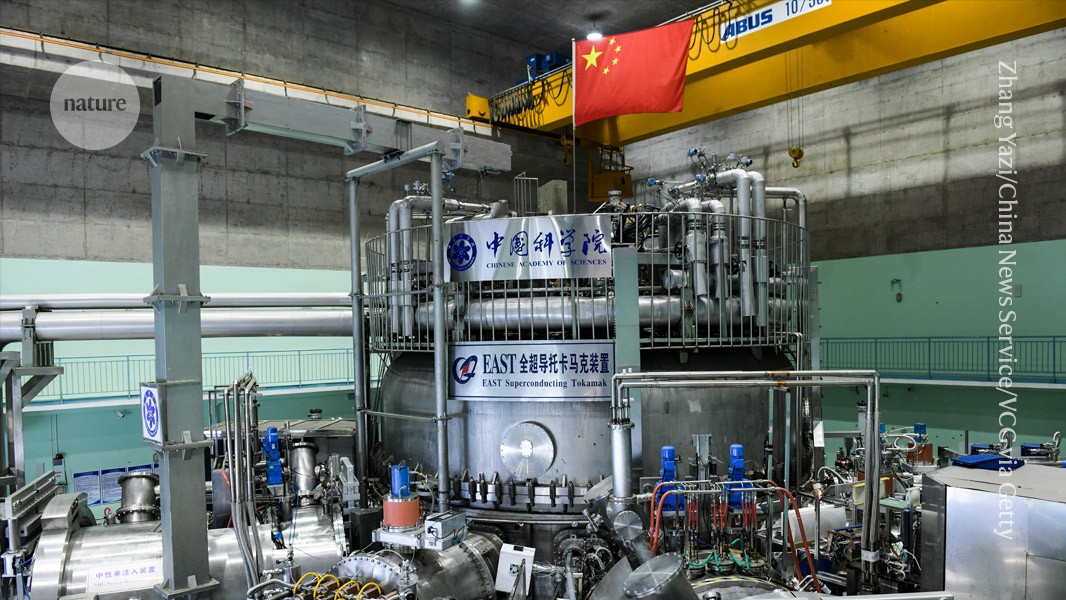The Experimental Advanced Superconducting Tokamak is a nuclear-fusion research reactor in Hefei, China.Credit: Zhang Yazi/China News Service/VCG via Getty
Researchers working on China’s ‘artificial sun’ have reported breaking a…

The Experimental Advanced Superconducting Tokamak is a nuclear-fusion research reactor in Hefei, China.Credit: Zhang Yazi/China News Service/VCG via Getty
Researchers working on China’s ‘artificial sun’ have reported breaking a…